Peugeot 5008 vs Land Rover Range Rover Evoque - Differences and prices compared
Compare performance (325 HP vs 269 HP), boot space and price (37600 £ vs 43300 £) at a glance. Find out which car is the better choice for you – Peugeot 5008 or Land Rover Range Rover Evoque?
Costs and Efficiency:
Price and efficiency are often the first things buyers look at. Here it becomes clear which model has the long-term edge – whether at the pump, the plug, or in purchase price.
Peugeot 5008 has a slightly advantage in terms of price – it starts at 37600 £, while the Land Rover Range Rover Evoque costs 43300 £. That’s a price difference of around 5691 £.
Fuel consumption also shows a difference: Peugeot 5008 manages with 2.70 L and is therefore distinct more efficient than the Land Rover Range Rover Evoque with 3.70 L. The difference is about 1 L per 100 km.
As for range, the Peugeot 5008 performs significantly better – achieving up to 669 km, about 609 km more than the Land Rover Range Rover Evoque.
Engine and Performance:
Under the bonnet, it becomes clear which model is tuned for sportiness and which one takes the lead when you hit the accelerator.
When it comes to engine power, the Peugeot 5008 has a slightly edge – offering 325 HP compared to 269 HP. That’s roughly 56 HP more horsepower.
In acceleration from 0 to 100 km/h, the Peugeot 5008 is to a small extent quicker – completing the sprint in 6.50 s, while the Land Rover Range Rover Evoque takes 7.20 s. That’s about 0.70 s faster.
In terms of top speed, the Peugeot 5008 performs minimal better – reaching 220 km/h, while the Land Rover Range Rover Evoque tops out at 213 km/h. The difference is around 7 km/h.
There’s also a difference in torque: Land Rover Range Rover Evoque pulls hardly perceptible stronger with 540 Nm compared to 511 Nm. That’s about 29 Nm difference.
Space and Everyday Use:
Cabin size, boot volume and payload all play a role in everyday practicality. Here, comfort and flexibility make the difference.
Seats: Peugeot 5008 offers evident more seating capacity – 7 vs 5.
In curb weight, Peugeot 5008 is hardly perceptible lighter – 1700 kg compared to 1792 kg. The difference is around 92 kg.
In terms of boot space, the Land Rover Range Rover Evoque offers clearly perceptible more room – 472 L compared to 348 L. That’s a difference of about 124 L.
In maximum load capacity, the Peugeot 5008 performs decisively better – up to 2232 L, which is about 1076 L more than the Land Rover Range Rover Evoque.
When it comes to payload, Peugeot 5008 hardly perceptible takes the win – 640 kg compared to 600 kg. That’s a difference of about 40 kg.
Who comes out on top?
Overall, the Peugeot 5008 shows itself to be leaves the rival little chance and secures the title of DriveDuel Champion.
It convinces with the more balanced overall package and proves to be the more versatile choice for everyday use.
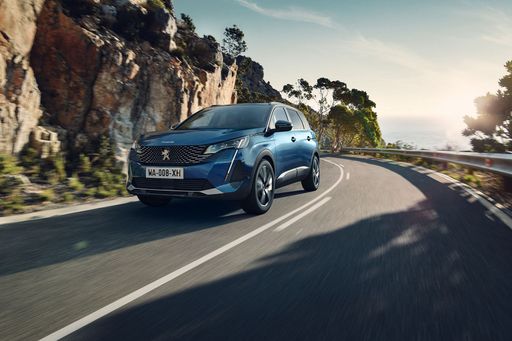
Peugeot 5008
Costs and Consumption
View detailed analysis
Engine and Performance
View detailed analysis
Dimensions and Body
View detailed analysis
Peugeot 5008
The Peugeot 5008 blends Peugeot's sharp design with the space and versatility families actually need, wrapping clever packaging and a premium-feeling cabin in a crisp, SUV-like silhouette. It drives with more poise than you'd expect from a people carrier, serves up practical touches and flexible seating for everyday chaos, and still looks good when parked outside the school gates.
details

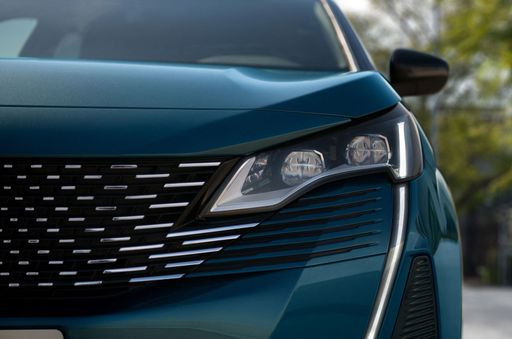

Land Rover Range Rover Evoque
The Range Rover Evoque turns heads with a compact, sculpted silhouette and an interior that feels more boutique hotel than utility vehicle. It delivers composed, playful handling around town while keeping enough ruggedness for weekend escapes — perfect for buyers who want luxury without the ostentation.
details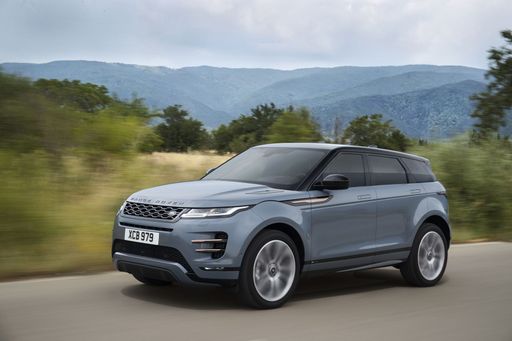
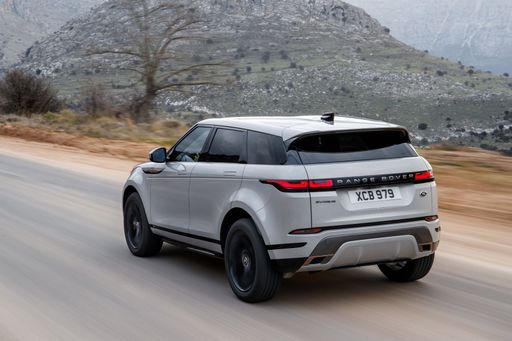
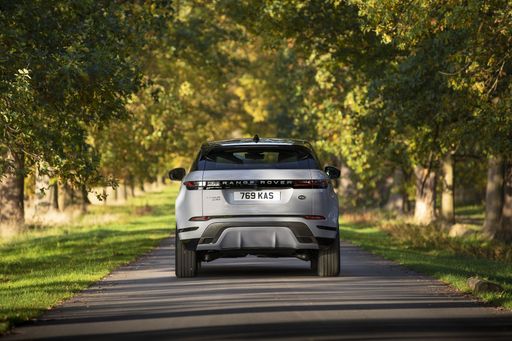
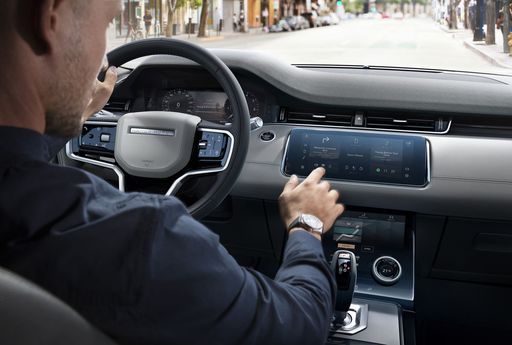

|

|
|
|
|
Costs and Consumption |
|
|---|---|
|
Price
37600 - 54200 £
|
Price
43300 - 64800 £
|
|
Consumption L/100km
2.7 - 5.6 L
|
Consumption L/100km
3.7 - 7.8 L
|
|
Consumption kWh/100km
17.8 - 18.6 kWh
|
Consumption kWh/100km
-
|
|
Electric Range
78 - 669 km
|
Electric Range
60 km
|
|
Battery Capacity
0.4 - 96.9 kWh
|
Battery Capacity
11.50 kWh
|
|
co2
0 - 127 g/km
|
co2
85 - 177 g/km
|
|
Fuel tank capacity
55 L
|
Fuel tank capacity
57 - 67 L
|
Dimensions and Body |
|
|---|---|
|
Body Type
SUV
|
Body Type
SUV
|
|
Seats
7
|
Seats
5
|
|
Doors
5
|
Doors
5
|
|
Curb weight
1700 - 2344 kg
|
Curb weight
1792 - 2157 kg
|
|
Trunk capacity
294 - 348 L
|
Trunk capacity
472 L
|
|
Length
4791 mm
|
Length
4371 mm
|
|
Width
1895 mm
|
Width
1900 mm
|
|
Height
1694 mm
|
Height
1649 mm
|
|
Max trunk capacity
2178 - 2232 L
|
Max trunk capacity
1156 L
|
|
Payload
596 - 640 kg
|
Payload
503 - 600 kg
|
Engine and Performance |
|
|---|---|
|
Engine Type
Electric, Petrol MHEV, Plugin Hybrid
|
Engine Type
Petrol MHEV, Diesel MHEV, Plugin Hybrid
|
|
Transmission
Automatic
|
Transmission
Manuel, Automatic
|
|
Transmission Detail
Reduction Gearbox, Dual-Clutch Automatic
|
Transmission Detail
Manual Gearbox, Automatic Gearbox
|
|
Drive Type
Front-Wheel Drive, All-Wheel Drive
|
Drive Type
Front-Wheel Drive, All-Wheel Drive
|
|
Power HP
145 - 325 HP
|
Power HP
160 - 269 HP
|
|
Acceleration 0-100km/h
6.5 - 10.2 s
|
Acceleration 0-100km/h
7.2 - 10.3 s
|
|
Max Speed
170 - 220 km/h
|
Max Speed
190 - 213 km/h
|
|
Torque
230 - 511 Nm
|
Torque
260 - 540 Nm
|
|
Number of Cylinders
3 - 4
|
Number of Cylinders
3 - 4
|
|
Power kW
107 - 239 kW
|
Power kW
118 - 198 kW
|
|
Engine capacity
1199 - 1598 cm3
|
Engine capacity
1498 - 1998 cm3
|
General |
|
|---|---|
|
Model Year
2024 - 2025
|
Model Year
2025
|
|
CO2 Efficiency Class
A, D, B
|
CO2 Efficiency Class
G, F, B
|
|
Brand
Peugeot
|
Brand
Land Rover
|
Is the Peugeot 5008 offered with different drivetrains?
Available configurations include Front-Wheel Drive or All-Wheel Drive.
The prices and data displayed are estimates based on German list prices and may vary by country. This information is not legally binding.
